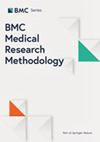Adaptation and psychometric assessment of a sexual and reproductive empowerment scale in Arabic among refugee and non-refugee adolescent girls
IF 3.4
3区 医学
Q1 HEALTH CARE SCIENCES & SERVICES
引用次数: 0
Abstract
Sexual and reproductive empowerment (SRE) is an important determinant of women’s and girls’ health yet measuring it is complex due to cultural and domain-specific variations. This study describes the process of adapting an SRE scale consisting of four domains (self-efficacy; future orientation; social support; and safety) and testing its psychometric properties among Arabic speaking adolescent girls in Lebanon. An SRE scale developed in a Western context was adapted in four steps: (1) reviewing the scale and selecting culturally appropriate domains for translation to standard Arabic; (2) conducting cognitive interviews with 30 11-17-year-old adolescent girls in Lebanon; (3) administering the scale to 339 refugee adolescent girls who participated in an early marriage intervention; and (4) conducting confirmatory factor analysis (CFA) on the data to assess the scale’s psychometric properties. The original model for the 13-item, four-domain adapted scale demonstrated poor fit in CFA. After iteratively removing two items, scale properties were improved, albeit were not optimal. The validity and reliability results for the self-efficacy domain were acceptable. Cognitive interview data revealed that Arab adolescent girls understood self-efficacy in relational terms, recognizing that autonomous decision-making is not necessarily favored but is influenced by parents and family. This study presents an effort to customize an SRE scale for use in studies on the health of adolescent girls in an Arab cultural context. Findings from cognitive interviews highlight the importance of taking into consideration relationality in adolescent sexual and reproductive decision-making. The self-efficacy domain in the adapted scale demonstrates acceptable psychometric properties and is recommended for use in health studies to capture SRE.在难民和非难民少女中改编阿拉伯语性与生殖赋权量表并进行心理计量评估
性与生殖赋权(SRE)是妇女和女童健康的一个重要决定因素,但由于文化和特定领域的差异,对其进行测量非常复杂。本研究介绍了对包含四个领域(自我效能、未来导向、社会支持和安全)的 SRE 量表进行改编的过程,以及在黎巴嫩讲阿拉伯语的少女中测试其心理测量特性的过程。我们分四个步骤改编了一个在西方环境下编制的自我评价量表:(1) 回顾量表并选择文化上合适的领域翻译成标准阿拉伯语;(2) 对黎巴嫩 30 名 11-17 岁的少女进行认知访谈;(3) 对参加早婚干预的 339 名难民少女实施该量表;(4) 对数据进行确证因子分析 (CFA),以评估该量表的心理测量特性。经改编的 13 个项目、四个领域的量表的原始模型在 CFA 中的拟合度较差。在反复删除两个项目后,量表的特性有所改善,但仍未达到最佳状态。自我效能领域的效度和信度结果均可接受。认知访谈数据显示,阿拉伯少女从关系的角度理解自我效能感,她们认识到自主决策并不一定受人青睐,而是受到父母和家庭的影响。本研究介绍了如何定制自我效能感量表,以用于阿拉伯文化背景下的少女健康研究。认知访谈的结果凸显了在青少年性与生殖决策中考虑关系性的重要性。改编后的量表中的自我效能领域显示出了可接受的心理测量特性,建议用于健康研究,以反映性与生殖教育。
本文章由计算机程序翻译,如有差异,请以英文原文为准。
求助全文
约1分钟内获得全文
求助全文
来源期刊

BMC Medical Research Methodology
医学-卫生保健
CiteScore
6.50
自引率
2.50%
发文量
298
审稿时长
3-8 weeks
期刊介绍:
BMC Medical Research Methodology is an open access journal publishing original peer-reviewed research articles in methodological approaches to healthcare research. Articles on the methodology of epidemiological research, clinical trials and meta-analysis/systematic review are particularly encouraged, as are empirical studies of the associations between choice of methodology and study outcomes. BMC Medical Research Methodology does not aim to publish articles describing scientific methods or techniques: these should be directed to the BMC journal covering the relevant biomedical subject area.
 求助内容:
求助内容: 应助结果提醒方式:
应助结果提醒方式:


